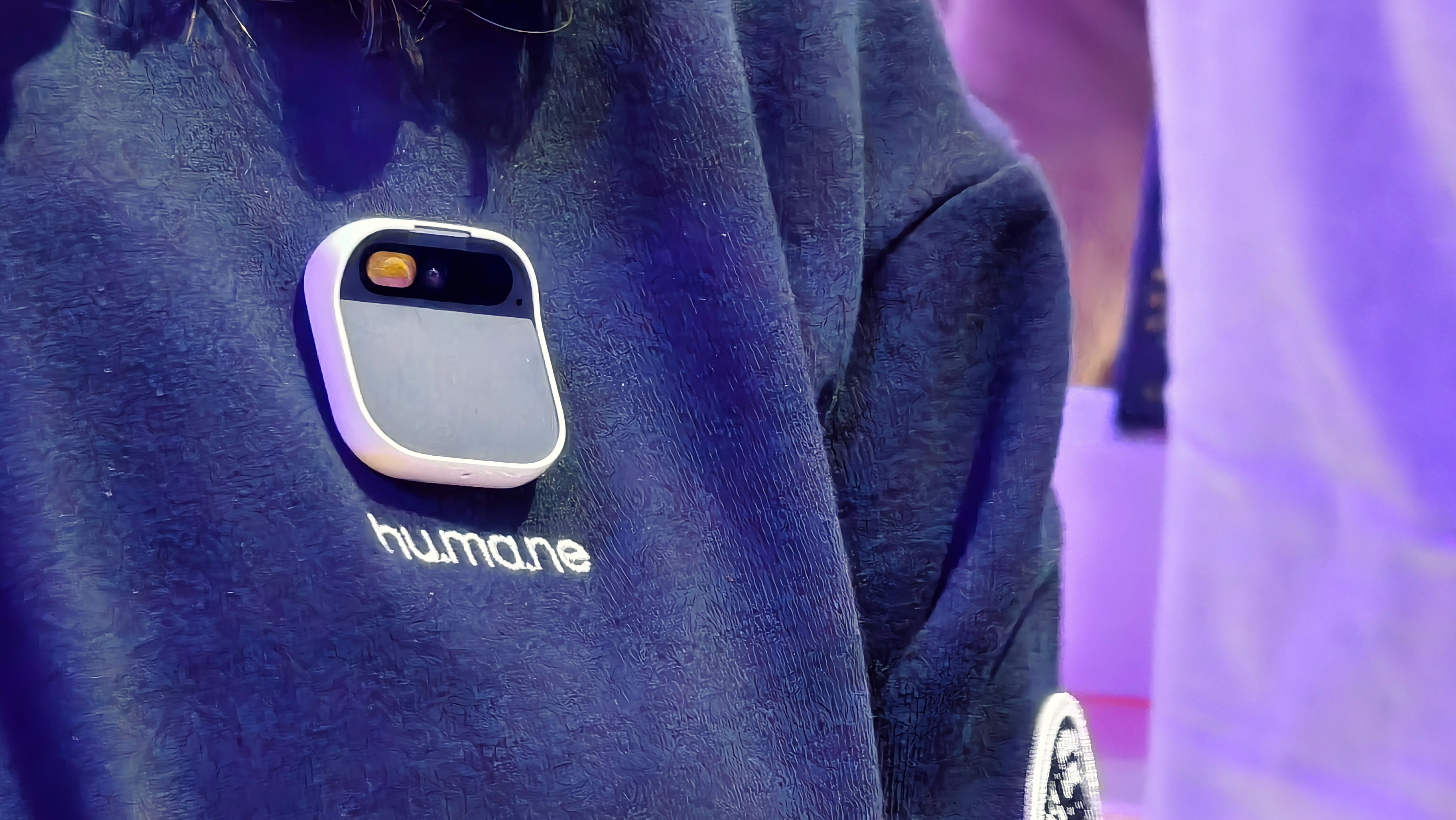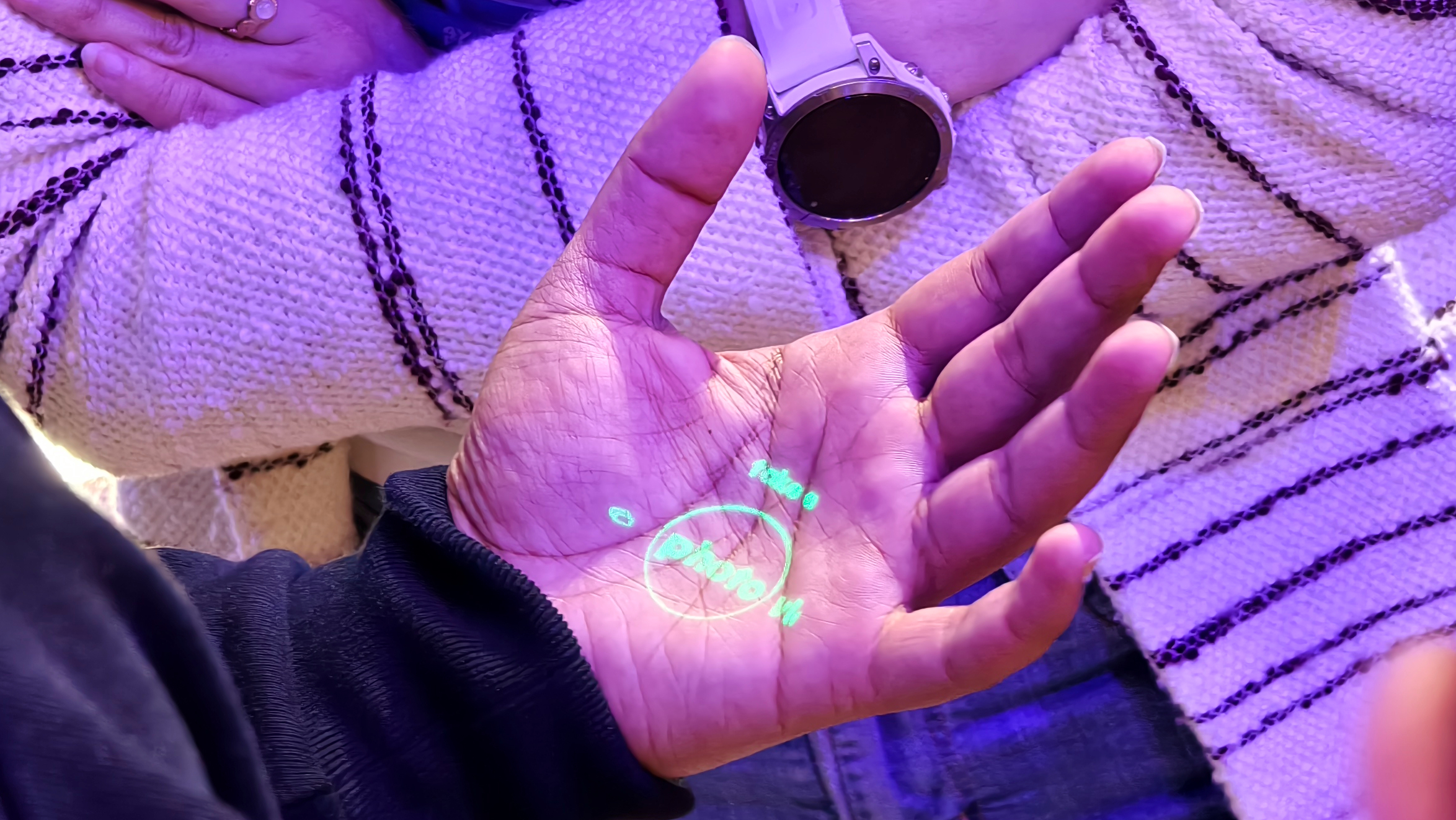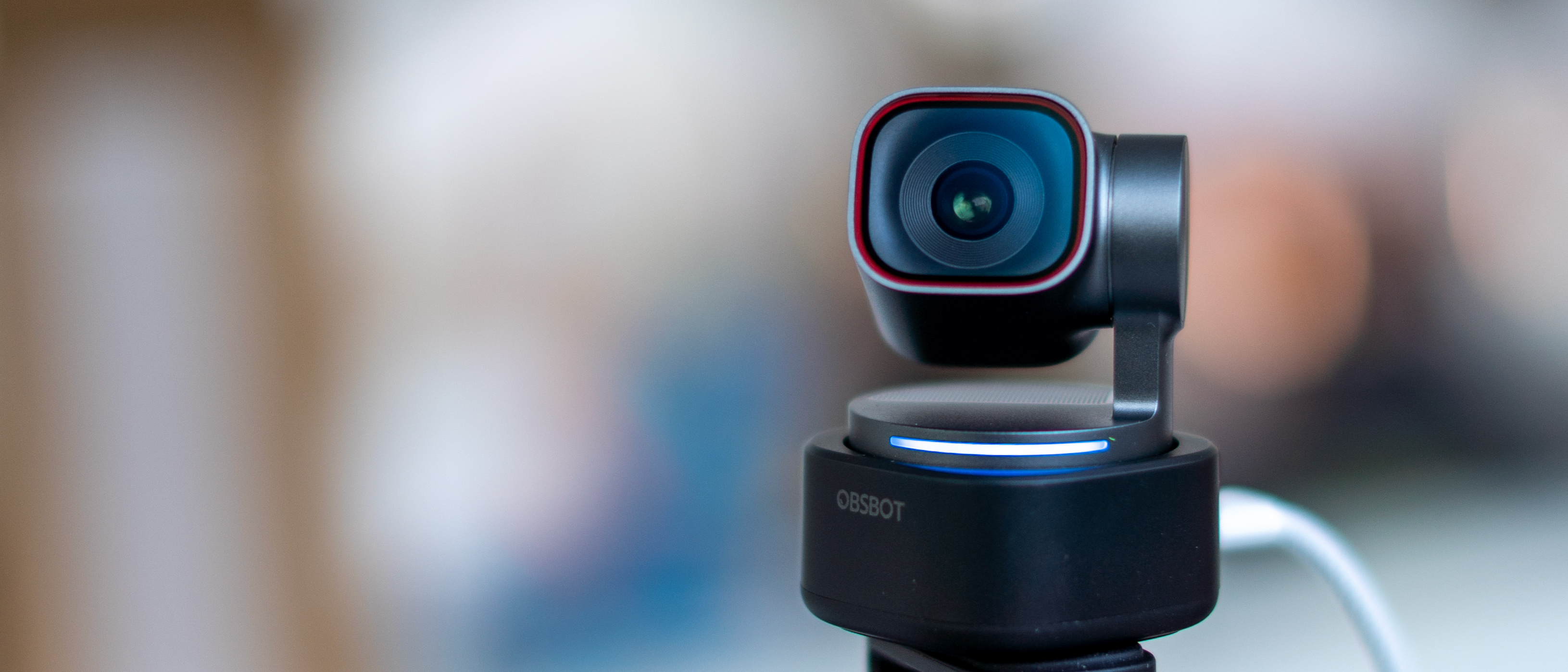Is this AI wearable the future of mobile photography?
Does the Humane AI Pin promise a glimpse at the future of photography wearables?

If you missed all the hubbub when it was initially announced, the Humane AI Pin is an entirely new type of device that's designed to replace your smartphone. You wear it like a lapel pin and it works a bit like a Star Trek Next Gen communicator. You tap the front of it to interact and, from that point on, it’ll respond to your queries like a supercharged Alexa.
Sounds a bit bonkers, right? Well, it gets even more bizarre. There's no display and if you want to use it without speaking, it’ll project a monochromatic UI onto your hands, which can be controlled via a series of finger and hand gestures.
This is the kind of weird product that would normally be shrugged off by the masses, but there's a serious team behind it. The company was founded by husband and wife team Imran Chaudhri and Bethany Bongiorn, both former Apple employees who worked on the iPhone, giving it more credibility than you might expect.
First encounter with a wild AI Pin
While I was wandering the endless halls of MWC Barcelona, I happened to stumble across some Humane staff hanging out at the Qualcomm booth, and they were all wearing the elusive AI Pin.
The first thing that struck me about the device is how small it is. It looks smaller than the DJI Mic 2, for example, and considering all the things it can do, that’s very impressive. Next came the projector, which was so much brighter than I imagined it would be. However, we were standing in a dimly lit exhibition hall, and this thing will need to compete with daylight if you’re using it outside, so I suppose it needs to be.
What didn’t surprise me, though, was how awkward it looked to use this projected UI. Yes, it’s super cool, and it draws a crowd, but practicality is not its strong suit. I get that the idea is all about moving away from screens, but the single colour preview of a photo is a prime example of its shortcomings. It almost looked like a QR code as it was projected onto the Humane employee’s hand!
But is it any good at taking pictures?
Of course, smartphones are used for much more than web access and communication. For a lot of us, it’s the main way that we capture photos and videos. The Humane AI pin can do that, too, and I was very excited to see how they looked.
The best camera deals, reviews, product advice, and unmissable photography news, direct to your inbox!
I was shown some images and videos on taken with the Pin on the Humane rep’s smartphone. Obviously, this is something that a phone is better for, as the pin doesn’t have a display. Unfortunately, I can’t show the images here, as they’re the staff member’s personal family photos, but I did get a decent look at the quality.
Images come out in a square-ish aspect ratio with an extremely wide FOV, probably equivalent to around 12mm in full-frame speak. There’s no barrel distortion, and the pictures looked very detailed and high quality, as far as I could tell. The reason for this super wide angle is that the Pin is something that you wear, rather than something you point and aim like a camera. So it needs to get as much in frame as possible.
This isn’t going to result in the most inspiring compositions, but it could work for quick snaps of scenes you want to remember. According to Humane, the idea is to keep you in the moment, rather than viewing precious moments through your smartphone display, and it starts to make sense from that perspective.
I only saw a short video clip, but it was displayed in a more traditional 16:9 aspect ratio, and again, the quality looked better than I expected. Stabilisation looked decent in the short clip, too. It made me wonder if it’d work for hands-free POV shots, like when you’re riding a bike.
Even after seeing the device being used in the real world, I’m left with more questions than answers. Humane thinks this device can replace your smartphone, and I’m not so convinced. As an additional accessory, though, who knows, it could turn out to be the next big thing.
If you’re interested in giving the AI Pin a go, it will begin shipping in April, with a retail price of $699.
For more on mobile photography, check out our guide to the best camera phone.

Luke is a freelance tech journalist who has been working in consumer electronics for over a decade. His specialties include cameras, drones, computing, VR, and smartphones. Previously Features Editor at Pocket-lint, Luke can now be found contributing reviews and features to a variety of tech publications, as well as running a YouTube channel called Neon Airship in his spare time.



